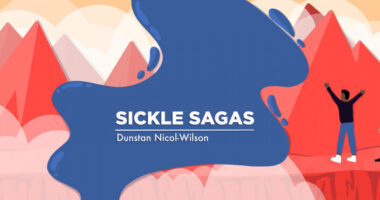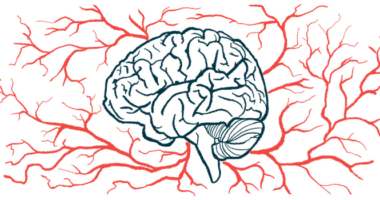My Support Network Is More Than an Audience During a Crisis

I’ve often considered myself unlucky to carry the burden of sickle cell disease, which sometimes seems insurmountable.
The journey can be isolating. I have aches and pains that nobody can see and emotions I’m still learning to process. In many situations, I’m constantly thinking about myself, particularly how to avoid triggers and how my actions will affect my body.
It’s easy to become overwhelmed by it all. One analogy I find helpful is that sickle cell is like a beast I’m constantly battling to keep locked in its cage. From my vantage point, this is a fight between beast and master.
My support network has often felt like the spectators of my battles. They can’t feel the pain or make it go away; they simply watch me fight for control of my body.
But after speaking with them, I’ve realized that the people around me aren’t just members of an audience. When I lose a battle and the beast breaks free, sending me into a crisis, my outpouring of emotions and the resulting physical limitations endanger my friends and loved ones.
This is not a solo battle.
Before a crisis
Because I’m constantly focused on avoiding a crisis, I tend to overthink things and become overly affected by unexpected events, the result of which can put me in a bad mood.
I tend to believe that I handle those situations well, but other people say there’s a visible difference in my body language and mood. This change in my behavior can appear spontaneous and random, even though it’s unintentional on my part.
During a crisis
When a crisis begins, I always feel angry and frustrated with myself, as I have probably done something to cause my pain. I try to internalize and subdue my emotions so as not to burden others. But people in my support network say my emotions aren’t subdued. By giving them curt answers or being less than forthcoming about being OK, I effectively push them away.
Recovering from a crisis
As I recover from the pain of a crisis, the beast gets locked back up. However, the wounds it inflicted are still there, so I become more withdrawn as I cope with the mental and physical toll. Around others, I try to pretend the crisis is over and I’m fine, but they can see through my façade. Many of them have said they feel helpless when I become withdrawn, cold, and caught up in self-pity, because I’m normally a caring and happy person.
After speaking with my support network about my internal struggles, I realize they also play active roles in my battles. Sickle cell isn’t just a fight between beast and master, and thinking about others as spectators only makes things harder for all of us.
Going forward, I need to be mindful about communicating during crises and showing appreciation for the care I receive.
Note: Sickle Cell Disease News is strictly a news and information website about the disease. It does not provide medical advice, diagnosis, or treatment. This content is not intended to be a substitute for professional medical advice, diagnosis, or treatment. Always seek the advice of your physician or other qualified health provider with any questions you may have regarding a medical condition. Never disregard professional medical advice or delay in seeking it because of something you have read on this website. The opinions expressed in this column are not those of Sickle Cell Disease News or its parent company, Bionews, and are intended to spark discussion about issues pertaining to sickle cell disease.








Marshall Jones
I feel you.
Dunstan Nicol-Wilson
Thanks Marshall